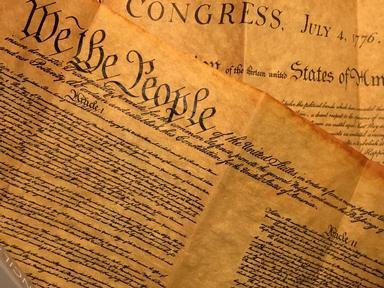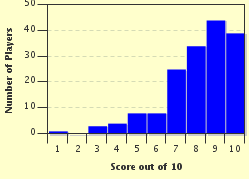Quiz Answer Key and Fun Facts
1. Why are the branches listed in the order 'legislative, executive, judicial' in the U.S. Constitution?
2. Which of these officials is NOT part of the judicial branch?
3. In the U.S., who is the head of the executive branch?
4. What is the job of the U.S. Congress?
5. What is the president's main power concerning laws?
6. As set by the U.S. Constitution and expanded by its own ruling in Marbury v. Madison, what are the duties of the Supreme Court?
7. What branch is responsible for dealing with impeachment?
8. The three levels of the federal court include the U.S. Supreme Court, the U.S. District Court, and which other court?
9. Where must all taxing laws start?
10. After the Department of Homeland Security was created in 2002, how many federal executive departments were there?
Source: Author
Tonysoldier319
This quiz was reviewed by FunTrivia editor
trident before going online.
Any errors found in FunTrivia content are routinely corrected through our feedback system.


